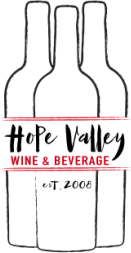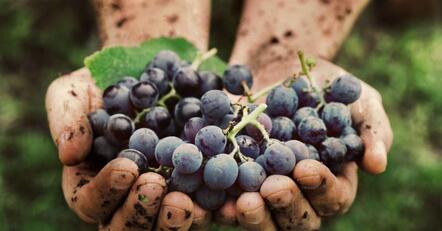Minimal Intervention Wines
a.k.a. "Natural" Wines
1:00 - 3:00
There are some basic tenets which most wines that fit into this theory tend to follow:
~ Grapes are typically grown by small-scale, independent producers
~ Grapes are hand-harvested from sustainable, organic, or biodynamic vineyards.
~ Wine is fermented by native yeasts, using the yeasts naturally present on the grape skins or in the winery, and not inoculating the wine with specifically cultivated yeast strains.
~ No additives are included in fermentation
~ Little or no sulfites are added
Outside of loose guidelines like those above, there is no official or regulated definition of "natural" wine. For us here at Hope Valley Wine and Beverage we tend to lean towards ones that are made by winemakers pragmatic enough to know that minimal additions of certain natural additives can improve the taste, clarity, and shelf stability of many wines. We like wines that will have bottle consistency, where you know that a second bottle of a wine you enjoyed last week will taste the same this week. Certainly the same wine from different years will show differences between vintages, but we find that some wines from the hardcore "raw wine" movement can taste vastly different from bottle to bottle. That's why we prefer the idea of Minimal Intervention Winemaking, where the winemaker mostly just lets nature run its course, but can gently nudge and guide as needed. We've selected four wines to taste this weekend that fit within this ethos, and look forward to sampling them with you.
Clos de la Briderie 'Pureté de Silex' Brut
Chenin Blanc, Chardonnay, Cabernet Franc, Cabernet Sauvignon
Crémant de Loire, France, NV
Les Athlètes du Vin Sauvignon Blanc
Touraine, Loire Valley, 2021
Birichino Vin Gris Rosé
Grenache, Carignane, Cinsault, Mourvedre, Rolle
California, 2022
Skull Wines Red Wine
Zinfandel, Syrah, Mission, Petite Sirah, Cabernet Sauvignon, Alicant Bouschet
California, 2021

